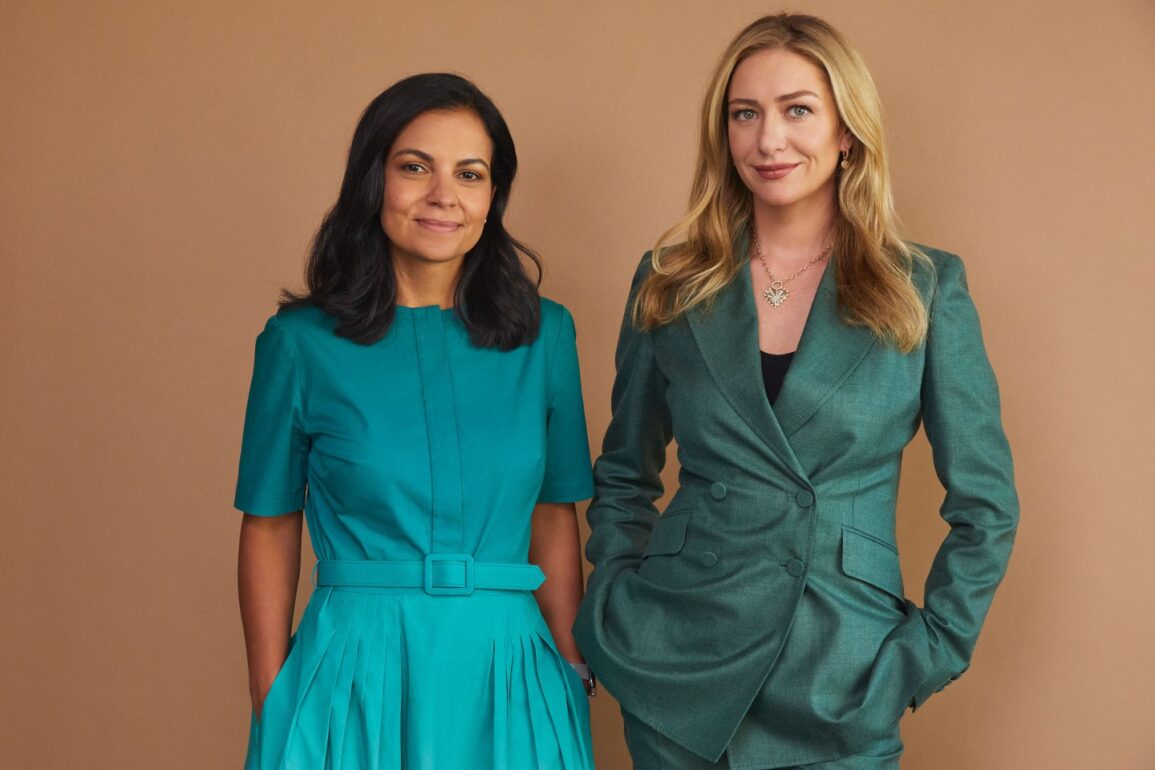Good morning, Broadsheet readers! Philanthropist and political contributor Barbara Lee plans to retire and wind down spending, women are outpacing “biohacking” bros, and Bumble founder Whitney Wolfe Herd is ready for a new chapter. Have a great Tuesday!
– The right swipe. In the nine years since she founded the dating app Bumble, Whitney Wolfe Herd has led several versions of the company. First, she was a hyper-visible founder backed by a quiet majority shareholder. Then, in 2019 she bought him out with the help of Blackstone and became the CEO of a new parent company. In 2021, Wolfe Herd became the youngest woman to take a company public.
Yesterday, she announced a step into the next phase of her career and Bumble’s existence. Wolfe Herd will step down as CEO of parent company Bumble Inc., she said, and become executive chair in January. Her successor is Lidiane Jones, the CEO of Slack.
Wolfe Herd founded Bumble at age 24 after exiting competitor Tinder, where she was a cofounder and allegedly the target of sexual harassment, as was well-chronicled in media reports and lawsuits. She came up with the idea for Bumble to solve some of the problems she saw on Tinder—namely that its “explosive and revolutionary” technology was “deeply flawed as it pertained to women,” she told me in an interview yesterday.
Courtesy of Bumble
But Wolfe Herd, now 34, is eager to return to her “founder roots.” She’s most energized when she’s thinking big—not prepping for quarterly earnings calls. “I never started this company to be a publicly-traded CEO,” she says. “I started this company to solve a problem that I experienced. I started this company to solve problems for women around the world.”
She considered moving on from the CEO job for years but waited until she found “the right partner” to succeed her. Bumble’s hire of Jones is a bit of a coup; Jones only became CEO of Salesforce-owned Slack 11 months ago. A Salesforce executive before that and an alum of Microsoft and Sonos, Jones is a product-minded executive; Wolfe Herd’s biggest strengths are in brand and marketing. Jones takes over amid a difficult time for the dating app industry, which is struggling with falling revenue while high inflation tightens consumers’ budgets. Bumble’s share price is around $13, a steep dive from its $70 2021 IPO price, and it dipped on news of the leadership transition yesterday. Jones plans to focus on incorporating more AI into Bumble’s family of apps and driving more international growth.
The pair spent the day together in New York yesterday. “I looked at Whitney this morning and said, ‘Wow, from the youngest woman to take a company public to an immigrant that came here on a scholarship—this is what Bumble is is all about,’” Jones told me.
Read my full interview with both Bumble leaders here.
Emma Hinchliffe
emma.hinchliffe@fortune.com
@_emmahinchliffe
The Broadsheet is Fortune’s newsletter for and about the world’s most powerful women. Today’s edition was curated by Joseph Abrams. Subscribe here.
ALSO IN THE HEADLINES
– PAC-ing her bags. Philanthropist Barbara Lee plans to retire by the end of 2024 and wind down the political spending that’s made her a key ally of female candidates for years. Lee’s office states that she’s contributed nearly $2 million each to more than 400 candidates, 200 of which were elected as governors, congresswomen, and even as vice president. Boston Globe
– The anti-biohackers. Women whose approaches to long-term health include healthy diets, exercising, and the occasional sauna session are largely outpacing men who use expensive “biohacking” technology to improve their biological age. That’s according to the Rejuvenation Olympics, which ranks participants based on how old their cells are—a stat that can be significantly lower than their actual age based on how healthy their body is. Fortune
– To the polls. Voters in Ohio will vote Tuesday to decide whether to enshrine abortion access in the state’s constitution or leave it vulnerable to future legislation. Meanwhile, Virginia Democrats have put abortion rights at the center of their campaign to control state legislatures in another election Tuesday. Together, the contests will gauge how abortion could shape upcoming elections. Wall Street Journal
– Guide to AI. Stanford computer science professor Fei-Fei Li is expected to release her memoir, The Worlds I See: Curiosity, Exploration, and Discovery at the Dawn of AI, this week as a partial account of her decades-long AI research. Li’s immediate concern is AI replicating disinformation and displacing jobs versus science fiction-esque doom scenarios and is urging strong government regulation and funding for higher education AI research. The Information
– Fashion forward. At the annual Council of Fashion Designers of America awards on Monday, Tory Burch was nominated for womenswear designer of the year for the first time since 2004. The nod reflects Burch’s years-long effort to pivot her designs from “basic” to cutting edge. Since stepping down as CEO of her brand in 2019, she’s centered her attention on making “women feel beautiful and confident.” Washington Post
MOVERS AND SHAKERS: Paper appointed Dr. Monica Goldson to its board of directors.
ON MY RADAR
Beauty’s newest backers? Celebrities Vogue Business
Where the hell Is X CEO Linda Yaccarino? Wired
Tracey Emin is serious Vulture
PARTING WORDS
“I haven’t had much fun in my life, to tell you the truth. And I want to have more fun.”
—Actress and singer Barbra Streisand, in what she says is likely her last interview ever, on enjoying a quiet life after her memoir My Name is Barbra releases this week
This is the web version of The Broadsheet, a daily newsletter for and about the world’s most powerful women. Sign up to get it delivered free to your inbox.









